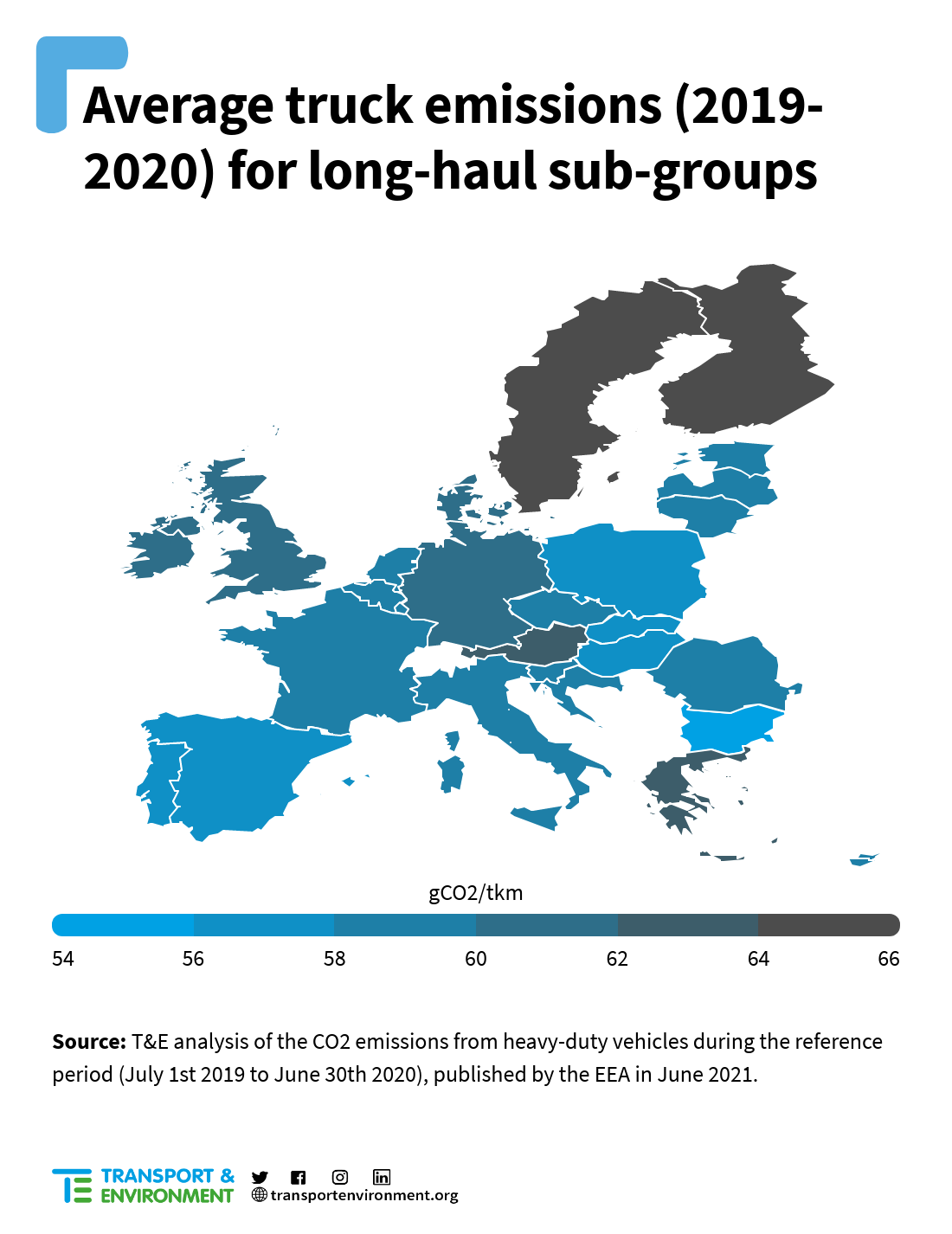Current UK regulations are unfit to deliver the government’s goal to end diesel truck use by 2050, a new study shows. Improvements in aerodynamics and fuel efficiency mean trucks can already achieve the UK’s inadequate 2025 CO2 reduction target while producing virtually no zero-emission vehicles. T&E says the Department for Transport needs to require manufacturers to produce and sell 50% zero-emissions trucks by 2030 and 100% by 2037 to ensure all diesel trucks are off the road by 2050.
The study found virtually no sales of zero emission trucks in the UK and that long haul articulated trucks sold here had on average 1.8% higher CO2 emissions than those sold across the EU. Long haul trucks sold in France, Spain, Italy and most Eastern European countries were all less polluting than those sold in the UK.

Greg Archer, UK Director at T&E, said: “UK Trucks are in the crawler lane when it comes to shifting to zero emission vehicles. Not only is there virtually no supply of zero-emission electric trucks, long-haul diesel trucks sold in the UK are even less efficient than those sold in Poland. The current UK regulations for truck emissions are totally inadequate to achieve the government’s goal to have diesel trucks off the road by 2050.”
With Brexit, the UK translated EU rules to reduce CO2 emissions from trucks sold in the UK. But these regulations do not require the truck industry to supply and sell any zero emission vehicles. In July, the Government announced its new goal was to end the sale of new smaller rigid trucks less than 26 tonnes by 2035 and end the sales of all new diesel trucks by 2040. These are intended to ensure all diesel trucks are off the road by 2050. However, there are no regulations that require truckmakers to sell zero emission vehicles which T&E is calling on the government to introduce.
The study also examined the CO2 emissions from new trucks sold in the UK and EU in 2020. It found Swedish truckmaker Scania produced the lowest CO2 trucks with emissions 5.3% lower than the average for the most common type of long-haul truck. Scania’s better emissions performance is primarily down to improved aerodynamics. Trucks sold by laggards Renault and IVECO, have the highest emissions about 2.5% above the long-haul average. If all of Europe’s trucks performed as well as the most efficient models on the market, it would reduce average truck CO2 emissions by 6% today, the study shows. But efficiency gains alone will not get Europe’s trucking sector anywhere near zero emission by 2050, T&E warns.
Greg Archer added: “Weak UK regulations, copied from the EU, are allowing truckmakers off the hook when it comes to tackling their CO2 emissions. The industry won’t act without regulations that force it to. It is time for the UK to break away from the EU’s failing system and require companies to sell 50% zero emissions trucks by 2030 and only zero emission models by 2037.”
Most truckmakers have now made voluntary announcements they will begin to sell electric trucks. If met, these would grow the market to around 7% zero-emission vehicles in 2025 and 43% in 2030 – much higher than the 5% needed in 2025 to meet existing targets.
Notes
[1] Each truck manufacturer has a specific target based on the number of sales in different truck sub-groups (mileage, size, power etc.)


